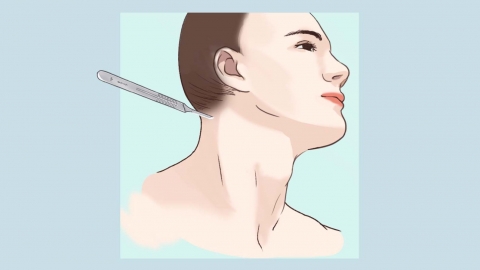Which department should I visit for necrotizing lymphadenitis?
Necrotizing lymphadenitis can be evaluated in departments such as hematology, infectious diseases, rheumatology and immunology, general surgery, or emergency medicine, depending on the acuteness of the condition, associated symptoms, and hospital department availability. Immediate medical attention is required if persistent high fever, rapid enlargement of lymph nodes, or worsening systemic discomfort occurs.

1. Hematology: Necrotizing lymphadenitis must be differentiated from hematologic disorders such as lymphoma. Hematology specialists can perform complete blood counts, bone marrow aspiration, and lymph node pathological examinations to confirm diagnosis, exclude hematologic diseases, and provide accurate guidance for further treatment.
2. Infectious Diseases: When symptoms such as high fever and fatigue suggest a possible viral or atypical pathogen infection, the infectious diseases department can conduct pathogen testing to identify the type of infection and initiate appropriate anti-infective and symptomatic treatments to control the inflammatory response.
3. Rheumatology and Immunology: In cases where necrotizing lymphadenitis is associated with autoimmune factors, this specialty can assess immune status through tests for rheumatoid factors and autoantibodies, and use immunomodulatory medications to help control disease progression.
4. General Surgery: When lymph node biopsy via fine-needle aspiration or surgical excision is needed for definitive diagnosis, general surgeons can perform these procedures to obtain tissue samples for pathological analysis, providing critical diagnostic information.
5. Emergency Department: For urgent presentations such as sudden high fever, severe lymph node pain, or signs of systemic toxicity, the emergency department can rapidly administer symptomatic care—including antipyretics and intravenous fluids—to stabilize vital signs before transferring the patient to a specialized department for further management.
For daily care, ensure adequate rest and avoid overexertion. Maintain a light yet nutritious diet, keep the skin clean, and prevent friction around affected lymph nodes. Closely monitor body temperature and changes in lymph nodes, take prescribed medications as directed, and attend regular follow-up appointments.




